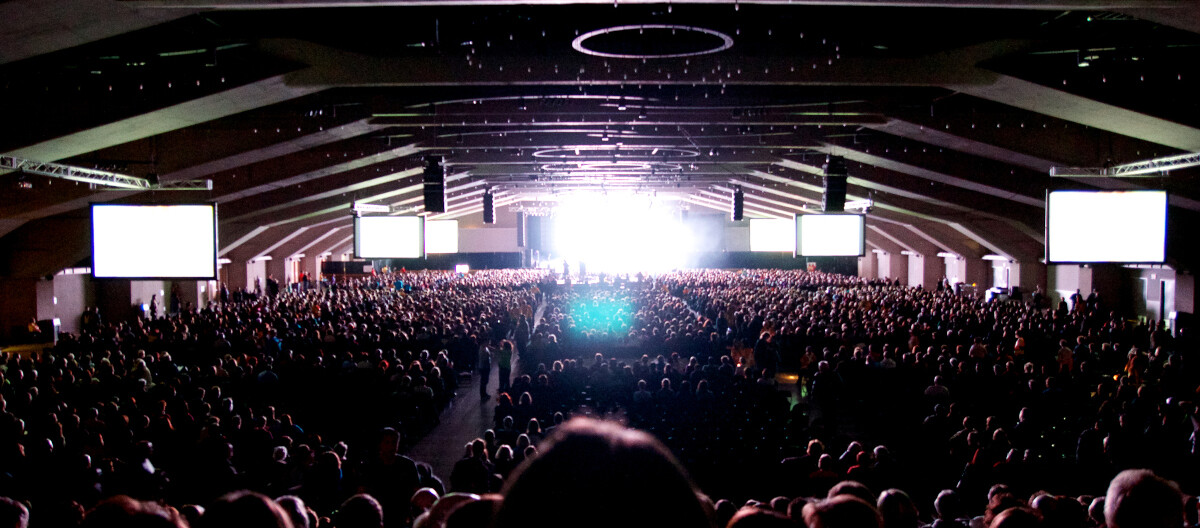Recent developments in B2B trade fairs
Due to the COVID-19 pandemic, 2020 and 2021 were dormant years for the B2B events industry. Strict social distancing measures meant that very few traditional trade fairs took place. Industry events were either held virtually or cancelled altogether.
2022 saw the first signs of revival, though the first quarter was still affected by restrictions. A 2023 publication by the Events Industry Alliance (EIA) reported that the UK exhibition industry generates £9.4 billion in trade and attracts 6.1 million visitors to the UK. While this remains below pre-pandemic levels, there is demonstrable progress. According to the July 2023 UFI Global Exhibition Barometer, operating profits have increased by 57% compared to 2019, with revenue growing by an impressive 109%.
An additional EIA study revealed that in 2022 there were an estimated 969 exhibitions at the UK’s main exhibition venues, with more than a third being held at the UK’s four primary venues: ExCeL London, Olympia London, the National Exhibition Centre (NEC) in Birmingham, and Scottish Event Campus (SEC). There were an estimated 6.11m visits to exhibitions at these venues over the year, with median event attendance of 2,800 and an average of 126 exhibitors per event.
While overall numbers of exhibitions were down, the number of trade exhibitions had actually increased since 2019. Both venue hire days and exhibition open days were roughly the same as pre-pandemic levels. Respondents to the July 2023 report showed a positive view of face-to-face events, with 89% agreeing that the COVID-19 pandemic had reinforced the need for such events and predicting that the sector would bounce back quickly.
B2B event marketing: from hybrid to pure digital
During the COVID-19 pandemic, many B2B events took place entirely online. Companies hastily set up virtual event and exhibition rooms, as well as introducing other digital offerings. These included video tours, virtual product presentations, digital catalogues, discussion forums and confidential one-on-one sales conversations via online chat. Not only did these virtual offerings become more professional over time, they also saved on time and travel expenses. However, they have not completely replaced face-to-face trade fairs. In many industries, it’s crucial for visitors to experience products in a physical location and to interact with them in a hands-on way. In-person events also provide the chance for face-to-meetings, as well as for serendipitous encounters which can lead to unexpected opportunities.
Hybrid events combine the best of both worlds, which is why face-to-face B2B events are increasingly also offering a virtual alternative. Many visitors have now become used to this flexibility, and B2B event managers must take these expectations into consideration. Formats which meet the needs of both in-person and digital participants are now in demand. This includes the following components:
- high quality content
- captivating presentations
- a relaxed, sociable atmosphere
- sustainability as an integral part of the event
Purely digital is not enough
But are hybrid or purely digital events what customers really want? Interestingly, none of the UK respondents to the UFI Global Exhibition Barometer survey envisaged virtual events replacing physical events. On the issue of hybrid events, opinions were divided, with 33% agreeing that this would “most probably” be the format of the future, and an equal percentage stating they were “not at all sure” that this would be the case.
However, many UK companies seem to have embraced the hybrid approach: 80% of UK respondents said they had added digital products or services to their existing offerings, in contrast to 64% of respondents worldwide. 70% of UK respondents reported having digitalised some of their internal processes and workflows, and 50% said they had launched digital products not directly related to existing exhibitions.
Looking to the future: challenges and opportunities for the B2B events industry
Despite their overwhelmingly positive view of digital and hybrid events, UK respondents had some concerns for the future of the B2B events industry. The most important business issues in the industry were cited as sustainability (18%), the impact of digitalisation (18%), global economic developments (15%) and the state of the UK economy (15%), as well as internal management challenges (15%).
When asked what issues they thought would most impact business development over the next five years, sustainability was again a significant factor, with 60% of UK respondents identifying climate-related regulations as a challenge. 50% cited changing customer expectations, and 40% digitalisation. However, a majority felt that the situation in the industry had returned to normal following the downturn brought about by the pandemic. There’s a clear need for flexibility in the B2B events industry: we cannot go back to pre-pandemic “business as usual”. UK companies seem to have accepted this and are adapting their services accordingly, creating added value via digital products and showcases which are not tied to specific events, but serve as an online “virtual fair” year-round.
In conclusion, we can expect in-person B2B events to retain their importance as a significant sales channel. However, there’s an increasing need to link these more closely and effectively with digital components.
